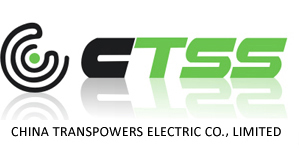Home >> News Center
ABB writes the next chapter in pioneering high voltage direct current technology
2017-6-14
ABB today announced the latest development in high voltage direct current (HVDC) Light, a breakthrough technology it pioneered 20 years ago, making it possible to reliably transmit large amounts of electricity over ever greater distances, economically and efficiently. ABB’s Power Grids division is the partner of choice for utilities around the world as they build or upgrade their power infrastructure.
ABB is now pushing the boundaries of this technology further. The next level of ABB’s HVDC Light will enable more than doubling the power capacity to 3,000 megawatts (MW). System design enhancements will bring a step change in compactness, with a potential to deliver 350 percent more power per square meter of space used – a big benefit in applications like offshore wind or interconnections, in terms of converter station footprint be it on offshore platforms or onshore installations. ABB’s latest advances, doubling power and distance capability, were made possible with the development of semiconductor-based power electronic devices that provide greater control and make smaller HVDC systems economical.
“We pioneered HVDC technology in the 1950’s as a game changer, and the birth of HVDC Light in 1997 was one of the most significant milestones in our innovation journey” said Claudio Facchin, President, ABB Power Grids. “As we mark 20 years of this breakthrough, we are ready to write the next chapter of this technology, with significant enhancements that will help transmit power further with minimum losses and bring major benefits to our customers. HVDC is a cornerstone of our Next Level strategy, reinforcing our position as a partner of choice in enabling a stronger, smarter and greener grid.”
ABB’s HVDC Light technology revolutionizes the transmission of large amounts of electricity over longer distances, underground, underwater and on overhead lines. Due to its versatility, it is an ideal solution for applications with space limitations. It enabled interconnections between countries to support the integration and balancing of renewables while facilitating electricity trading. It has also been deployed to integrate offshore wind energy and bring the power to shore, via converter stations positioned on offshore platforms.
The last two decades have seen significant advances in this technology. Power capacity has gone up nearly 30 times from 50 to 1400 MW – enough electricity to power several million households. Voltage levels have gone up from 80 to 525 kilovolts (kV), and distance capability from 70 to over 1,000 kilometers (km). At the same time transmission losses have been brought down to less than 1 percent.
Today, ABB leads the way with HVDC Light technology, having delivered 18 out of 24 VSC HVDC projects commissioned in the world, including several world records such as the world’s longest underground link, the most powerful offshore wind connection and the first overhead link deploying this technology.
With a higher voltage capability of up to 640 kV, the latest technology extends distance capability – doubling it to 2000 km – making it possible to transmit electricity over even longer distances, enabling more renewables to be integrated and longer interconnections to be built. Losses have been reduced further, which when combined with the above enhancements translate to significant cost optimization benefits for owners and transmission system operators. The latest ABB Ability-based MACH control and protection system will provide greater efficiency and reliability and the latest converter stations also feature several design and aesthetics improvements.
ABB pioneered HVDC technology more than 60 years ago and is the global market leader with over 110 HVDC projects, representing a total installed capacity of more than 120,000 megawatts, accounting for around half the world’s installed base.
ABB (ABBN: SIX Swiss Ex) is a pioneering technology leader in electrification products, robotics and motion, industrial automation and power grids, serving customers in utilities, industry and transport & infrastructure globally. Continuing more than a 125-year history of innovation, ABB today is writing the future of industrial digitalization and driving the Energy and Fourth Industrial Revolutions. ABB operates in more than 100 countries with about 132,000 employees. www.abb.com


 Hydro Turbine Generator Units
Hydro Turbine Generator Units
